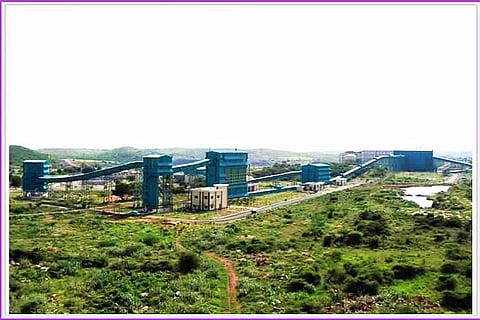

An expert committee appointed to look into the allegations of contamination of groundwater due to the uranium mine in Andhra Pradesh's Tummalapalle has submitted its final report to the state government. The Tummalapalle uranium mine is operated by the Uranium Corporation of India Ltd (UCIL), a centrally-owned public sector undertaking.
The committee was formed after orders of the Andhra Pradesh Pollution Control Board (APPCB). In its conclusion, the external advisory committee (comprising of experts from various fields, including nuclear chemistry) said, "With the available data, the pollution in the villages in and around the uranium plant could not be attributed to the operations of UCIL."
This report, however, has not gone down well with the residents in Tumalapalle village, environmental activists and senior scientists who have been highlighting the issue for years. Some termed the report unsatisfactory and inconclusive.
What the report says
"The committee observed with great concern that the (discharges) are dumped in the tailings pond in the form of slush through outfalls at multiple locations around the pond. Most of these outfalls are directly falling on the pond abutments, causing significant erosion and greatly increasing the likelihood of seepage...into the groundwater table," the committee noted.
This was in tune with the allegations of the residents in Tumalapalle village that the uranium mine’s tailings pond is not leak-proof. A tailings pond refers to a wet storage area where the by-products discharged from the mine are transported by a pipeline for containment. The residents claimed that the slush was seeping into their farmland and water bodies.
The committee also observed that fencing was not provided along the entire perimeter of the tailings pond and recommended that the entire area be secured, and "cautionary boards be displayed, to ensure the safety of humans and livestock from undue exposure to hazardous materials".
In another observation, the committee noted that "the water quality and water level data made available by the Pollution Control Board (PCB) and UCIL from the borewells around the tailings pond as well as from the surrounding villages were not sufficient to conclusively establish the source of contamination".
It recommended a long-term water quality monitoring strategy with a standard operating protocol by a reputed national agency.
Locals in the area had also complained of stunted growth of crops that refused to yield, and had laid the blame on the UCIL. To this, however, the committee claimed that "this could be from high Total Dissolved Solids (TDS) in the irrigation water. This has to be established through a systematic soil and water analysis from a standard laboratory of a reputed national agency".
"During the visit to flagged villages, large representations from local people about the incidence of skin disorders, lipomas, miscarriages and breathing issues were brought to the notice of the committee, alleging pollution from UCIL activities. It was also mentioned that these health issues started about 2016.... Considering this, the committee recommends authorities concerned to facilitate systematic environmental epidemiological studies in these villages," the committee observed.
'Justice denied to people'
In a statement, Dr K Babu Rao from the 'Scientists for People' (an organisation of retired scientists) said, "We are deeply disappointed with the report for its failure to adhere to the primary task of identifying the source of groundwater contamination and fix responsibility."
Recalling their fears and initial objections on the composition of the committee, the statement said, “The contents and tone of the report force us to conclude that the Pollution Control Board and the committee have colluded with the UCIL, the polluter in a cover-up operation, denying environmental justice to the affected people.”
Pointing out that the committee did not take into account its own observations while making its final conclusion, the statement said, "What are the other likely sources for groundwater contamination in that area other than the tailings pond? The committee has tried to push the blame on nature to exonerate bad practices and refusal to comply with the law by UCIL."
Also finding fault with the PCB, the statement added, "The Andhra Pradesh PCB has never shown any willingness to apply the law as mandated to it. Inaction against polluters is the hallmark of the environmental governance in Andhra Pradesh. Do we need such a regulatory body that is predominantly anti-people and pro-polluter?"